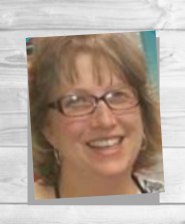
How to Homeschool with the Eclectic Method
July 19, 2019
Eclectic method of homeschooling is a mixture of various approaches. This philosophy utilizes a combination of approaches to find what works with a little of this and a little of that. Curriculum choice is very flexible and can be anything from an online curriculum to textbook based.
Eclectic is Custom Education
The aim of Eclectic homeschooling is to provide a customized education. Many modern education reformers suggest that education should be customized to fit the learner.
- “There isn’t any known way to bulk-educate. It’s all custom work.” ~John Taylor Gatto
- “One Size Does Not Fit All Some of the most brilliant, creative people I know did not do well at school. Many of them didn’t really discover what they could do—and who they really were—until they’d left school and recovered from their education.”
~Ken Robinson - “People should be free to find or make for themselves the kinds of educational experience they want their children to have.”
~John Holt
Relaxed Style–It Fits
There’s no such thing as a one-size-fits-all education. Even with the variety of educational philosophies and curriculum options, it’s still hard to find one that fits. Eclectic homeschooling takes a relaxed approach to finding what fits.
Attitude: Many homeschoolers don’t adhere strictly to one particular education style or another. Some may start out on one path and find that their plans don’t work as they anticipated.
Some philosophies share similar ideals and methods.
Eclectic method lets you relax your mindset and trust your gut.
Schedule: Some homeschoolers find that a more traditional schedule and structure feels safe. We can check off the boxes that we “did school today.” Letting go of the school-at-home model can take time to adjust. You could relax your schedule to do four days of seatwork learning, and designate Fridays “off” for an unschool or project-based learning day. You could take a break from your usual schedule for periodic unschooling.
Eclectic approach lets you relax your pace and content.
Budget: Everyone loves a bargain. Especially homeschoolers! Packaged curriculum programs can be pricey. Out of necessity, many homeschoolers piece together a plan with freebie and sale items. You could collect curriculum hand-me-downs for the future. Use these items as your primary guide or as a supplement.
Eclectic style lets you take it easy on your wallet and stick to a budget.
Mash-Up Examples
Creativity, innovation and personalization are essential for successful homeschooling. Some homeschoolers will adhere to a purist approach. Some will slowly morph into another approach. Others will settle into a mash-up approach all their own.
When Textbooks Still Make Sense: You might find that Unit Studies work well to integrate Literature, History, Science studies. You might utilize Charlotte Mason’s principles for living books, noble ideas and character development. You might prefer the unschooling philosophy of project-based, inquiry style learning. You might have several children with different ages that can do science and history together.
Many homeschoolers stick to a teacher-led, traditional school format for one subject in particular. It’s Math. No matter what style you follow, this is one subject that makes a lot of sense with a traditional textbook format. With multiple children at different ages, it works to have them each on their own Math level.
Classical Unschooling: The content of Classical education and the methods of unschooling can be appealing ideas. Some homeschoolers have developed their own mash-up version of these philosophies. Unschool parents might utilize “strewing” to spark student curiosity about classical literature and history. Some might implement some trivium-based lessons, followed by student-led discovery learning.
Most homeschool parents are not trained educators. Which means they learned about homeschool philosophies in an unschool, self-taught method. So, it also makes sense that children could also learn classical content with a self-taught method.
Charlotte Mason-style Unit Studies or Waldorf-inspired Unit Studies: You might find valuable elements from multiple approaches. You might like the flexible scope and sequence with Unit Studies topics. But, also like Charlotte Mason’s methods of living books, narration, dictations/copy work. Or maybe you like Waldorf’s focus on storytelling, nature and handicrafts. You can integrate the components that fit your educational goals.
Example of an Eclectic Homeschooling Day
- Reading: Read one chapter a day from a book the child has chosen. The parent will also often read challenging books to the children at night, like Jane Eyre, Phantom of the Opera, The Three Musketeers, and other classic children’s books.
- Writing: Eclectic families usually center their writing around journals, essays, letters to friends and the occasional report. Some families also participate in a “young writers” club, available through their support group.
- Math: Each child will have the math materials that best suit their learning style. One child may use math software, one child may use math manipulatives like rods, shapes, and counters, another child may use a math textbook. The parent then evaluates the child’s retention by periodically making up a sheet of problems that review all the math concepts the student has learned.
- Science: The emphasis is on hands-on experiments which the family does at home or through community science classes (like those put on by MadScience.com).
- History/Geography: The family will use workbooks, software, educational games, and historical fiction. Some families also make up time-lines and history notebooks like those used in the Classical and Charlotte Mason approaches.
- Special Interests: Afternoons are generally spent doing special projects, pursuing hobbies, and participating in community classes and teams like soccer, gymnastics, Boy Scouts, and 4-H.
Podcasts About Homeschooling Methods
Is Eclectic Homeschooling right for you?

Kim Andrysczyk is a secular homeschool veteran, homeschool group leader, coffee addict, sarcasm expert, and an accidental blogger. She’s the self-appointed busybody of homeschooling in South Carolina, always on the lookout for new connections to people, places, and resources. Find her at The South Carolina Homeschooling Connection and Facebook.
Latest Posts

While nearly every college and university today is eager to accept homeschooled students into their institutions, homeschooling families need to understand that their student’s application…
Read more >
Guest Post by Gabriel Morse For several years, I sat for long hours every day behind one of those battleship gray desks in a windowless, dull, gray office. The pay was enough to take care…
Read more >
This post is sponsored by Little Monsters Universe. I'm Tina Salmanowitz, an advocate for homeschooling and science education. With over a decade of experience as a science educator (in class…
Read more >

